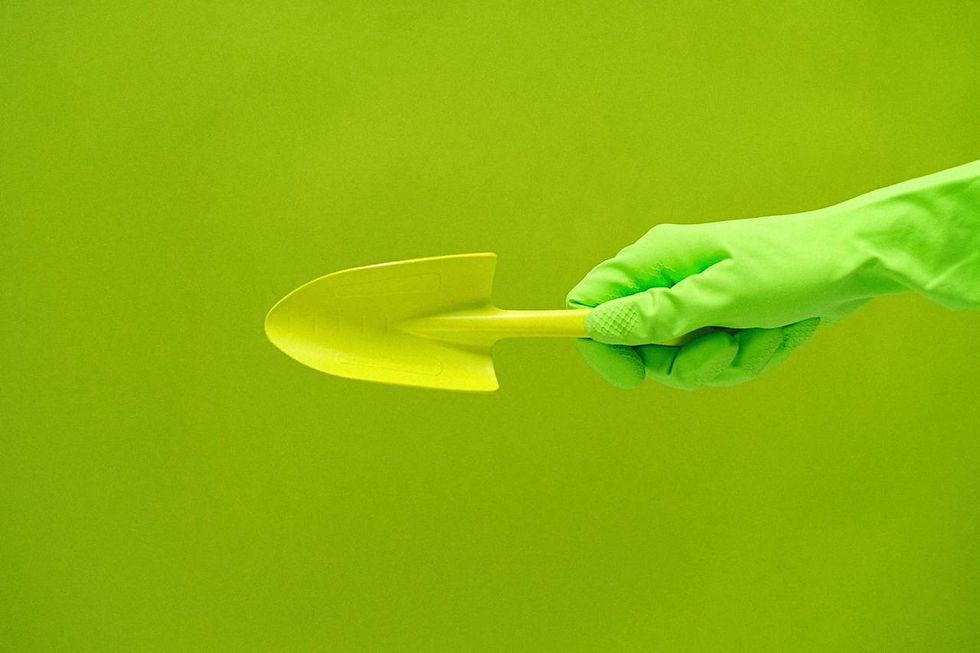The Complete Structure of the U.S. Cannabis Industry: From Seed to Sale
- Weed Gonzo

- Nov 14, 2024
- 4 min read
The cannabis industry in the United States is vast and intricate, with numerous businesses and professionals involved at every step, from cultivation to consumer purchase. Here, we explore the “seed-to-sale” structure of the U.S. cannabis industry, detailing each stage of the supply chain and the diverse types of businesses that play essential roles in bringing cannabis products to market.

Cultivation: Growing Cannabis Plants
At the core of the cannabis industry is cultivation, where cannabis plants are grown from seeds or clones in both indoor and outdoor environments. Cultivation businesses are responsible for producing the raw plant material needed for all cannabis products.
Types of Cultivation:
• Outdoor Farms: Typically large-scale and lower-cost, suitable for bulk production.
• Indoor Farms: Allow for year-round growing, control over environmental conditions, and often higher THC yields.
• Greenhouses: A middle ground that combines the benefits of outdoor and indoor growing.
Key Players:
• Licensed cultivators
• Breeders developing unique strains
• Greenhouse manufacturers and equipment suppliers
• Providers of fertilizers, nutrients, and grow lights
Processing: Transforming the Raw Plant
After harvest, the raw cannabis plants are sent for processing, where they are dried, cured, and prepped for further refinement or direct sale in raw flower form. This stage also includes extraction and refinement for producing concentrates, oils, and edibles.
Types of Processing:
• Flower Processing: Drying and curing for sale as raw flower or pre-rolls.
• Extraction and Refinement: Using methods like CO2, ethanol, or hydrocarbon extraction to produce oils, waxes, and shatter.
• Edibles and Infusion: Adding cannabis extracts to food, beverages, tinctures, and other consumables.
Key Players:
• Processing facilities specializing in extraction and refinement
• Equipment manufacturers for extraction and processing
• Quality control labs for testing potency and purity
• Packaging companies ensuring proper storage and regulatory compliance
Manufacturing: Creating Consumable Products
Manufacturing involves turning extracted cannabis oil or refined raw flower into various consumer-ready products, from edibles and tinctures to topical creams and vape cartridges.
Types of Manufactured Products:
• Edibles: Gummies, chocolates, and drinks.
• Topicals: Creams, balms, and lotions infused with cannabis.
• Vapes and Cartridges: Pre-filled vape cartridges for ease of use.
• Capsules and Tinctures: Standardized for medical and wellness use.
Key Players:
• Food scientists and chemists specializing in cannabis formulation
• Packaging and labeling companies for compliance with state laws
• Infused-product manufacturers
• Dosage and efficacy testing labs
Distribution: Transporting Goods
Distribution is a vital step that involves safely transporting cannabis products from manufacturers to retail dispensaries while adhering to state-specific regulations. Distributors ensure that products are transported securely and meet regulatory guidelines.
Distribution Models:
• Direct Distribution: Some states allow vertically integrated businesses to self-distribute.
• Third-Party Distributors: Companies that handle logistics and compliance on behalf of manufacturers and retailers.
Key Players:
• Licensed distribution companies
• Compliance and logistics managers
• Secure transportation providers
• Data systems for tracking inventory and delivery
Retail: Selling to Consumers
Retail dispensaries are the final link in the cannabis supply chain, providing consumers with access to a variety of cannabis products. Dispensaries are heavily regulated, with strict protocols for everything from product displays to customer education.
Types of Retail:
• Medical Dispensaries: Sell cannabis for medicinal use, often requiring patient registration.
• Recreational Dispensaries: Sell to adults over 21, with no need for a medical recommendation.
• Delivery Services: In states where permitted, licensed delivery services bring products directly to consumers.
Key Players:
• Licensed dispensary owners
• Budtenders trained to educate customers
• Inventory managers tracking stock and ensuring compliance
• Marketing and brand specialists for consumer outreach
Ancillary Services: Supporting the Industry
In addition to the core “seed-to-sale” stages, numerous ancillary services support the cannabis industry. These companies do not handle cannabis directly but are critical to the industry’s infrastructure.
Key Types of Ancillary Services:
Legal and Compliance Consulting: Attorneys specializing in cannabis law help businesses navigate state-specific regulations.
Marketing and PR Agencies: Support branding and consumer education.
Technology and Software Providers: POS systems, inventory tracking, and seed-to-sale software.
Testing Labs: Ensure products are safe, potent, and free from contaminants.
Real Estate and Security: Help cannabis businesses find secure, compliant locations and safeguard premises.
Regulation and Compliance: Ensuring Legal Operations
Compliance is a constant across all stages of the cannabis supply chain. Each business in the industry must adhere to a complex web of federal, state, and local regulations, covering everything from cultivation and product safety to packaging and advertising.
Regulatory Bodies:
• State regulatory agencies oversee cannabis compliance, issuing licenses and enforcing regulations.
• Federal agencies (like the FDA and DEA) influence aspects of the industry, although cannabis remains federally illegal.
Key Compliance Measures:
• Tracking and tracing every product from seed to sale.
• Testing products for potency, pesticides, and contaminants.
• Adhering to packaging and labeling laws to ensure consumer safety.
Summary: The Complex Ecosystem of the Cannabis Industry
The U.S. cannabis industry is a multi-faceted ecosystem, requiring coordination across diverse businesses to bring cannabis products to consumers. From cultivation to retail, each link in the chain plays a vital role in ensuring product quality, safety, and compliance. As the industry continues to evolve and more states legalize cannabis, the demand for integrated, efficient, and innovative solutions across the supply chain will grow, bringing new opportunities and challenges.
Understanding this intricate structure helps stakeholders—whether consumers, business owners, or investors—grasp the vast potential and regulatory complexities within the cannabis industry.







Commentaires